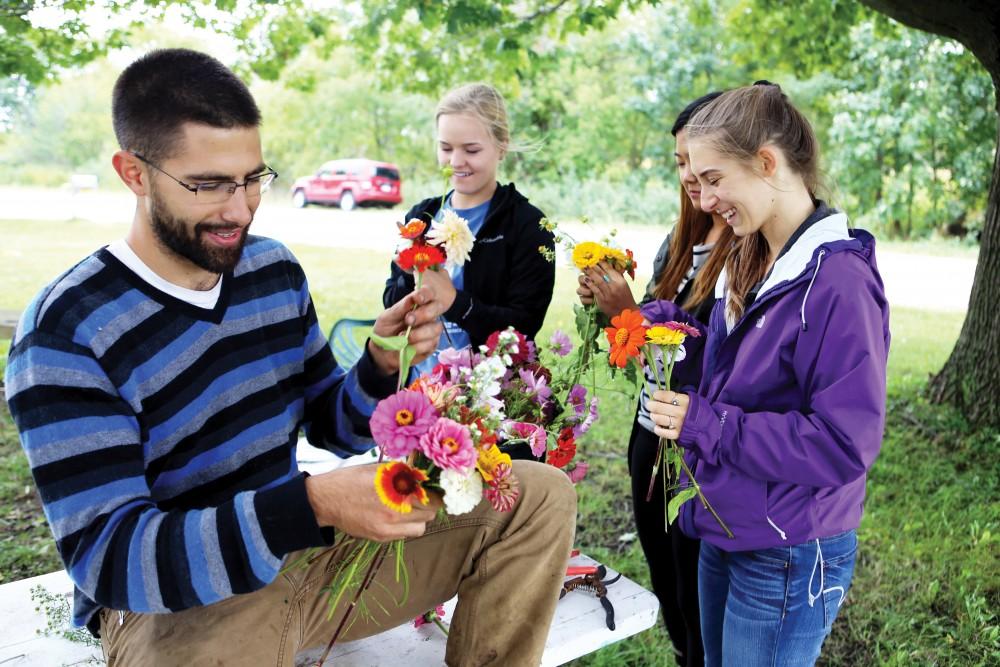GVSU student to host climate change forum

GVL/Emily Frye – Youssef Darwich (left) gathers bouquets of flowers alongside several Grand Valley student volunteers at the GVSU Sustainability Farm on Friday Sept. 30, 2016. Darwich will be the first to present at “Climate Change—It’s in Our Hands: How Food Choices Impact the Earth” which will be held Tuesday, Jan. 24, at the L.V. Eberhard Center from 7 p.m. to 9 p.m.
Jan 23, 2017
Few topics generate as much concern and heated discussion as climate change. Debate persists about the extent and even existence of this environmental phenomenon in different spheres, from weather—2016 was the hottest year on record—to politics.
Locally, Ellen Lavigne, a Grand Valley State University student, hopes to educate the GVSU community about climate change, specifically the impact food has on the environment, at an upcoming moderated community forum.
“Climate Change—It’s in Our Hands: How Food Choices Impact the Earth” will be held Tuesday, Jan. 24, at the L.V. Eberhard Center from 7 p.m. to 9 p.m. At this event, the Seidman College of Business Koeze Business Ethics Initiative will present four panelists to discuss climate change.
The two-hour discussion will include two parts. First, Youssef Darwich, the farm manager of the GVSU Sustainable Agriculture Project (SAP), and Austin VanDyke, an SAP intern, will give introductory presentations. Then, Kenneth Piers, professor emeritus of chemistry at Calvin College, will give a presentation, followed by Mara Spears, a GVSU student.
Each presenter will bring a unique perspective to the climate change discussion. For example, Piers will speak about the direct effect agricultural animals have on climate change, Lavigne said.
After the speeches, the panelists will open the floor for a discussion to take place with the audience members, who will be given time to ask questions directly to the speakers. Lavigne thinks people will be able to get the most information from this portion of the event.
“Our inspiration is to expand people’s understanding of where their food comes from and to educate them on how food is affecting climate change,” Lavigne said. “Cows are the biggest contributors to carbon emission, more than planes, boats or anything else. One burger is also 60 gallons of water.”
Lavigne said there are ways students can get involved, including pushing for plant-based diets. She also said it can be beneficial for students to talk to people who grow their own food and then start to grow their own.
“It would be helpful to grow my own food,” said Austin Wills, a GVSU student. “I haven’t thought of it before, but it wouldn’t be that hard.”
Other ways students can reduce carbon emissions include eating less beef, Lavigne said. She said cows use more than double the water humans do, too.
Another change that would help reduce carbon emissions would be for animal agriculture to move out of factories, Lavigne said. She thinks climate change is an enormous problem people face today and any steps to fix it should be taken.
“It’s important to me that we address the changes our climate is going under, and I see animal agriculture as one of the largest environmental problems today,” Lavigne said. “I really think that educating people and connecting them to the reality and facts will change their actions, moving us to a healthier, plant-based society. (If) we change the demand, we change the power, (and) power is education.”
For more information, email [email protected] or call (616) 331-3065.






















